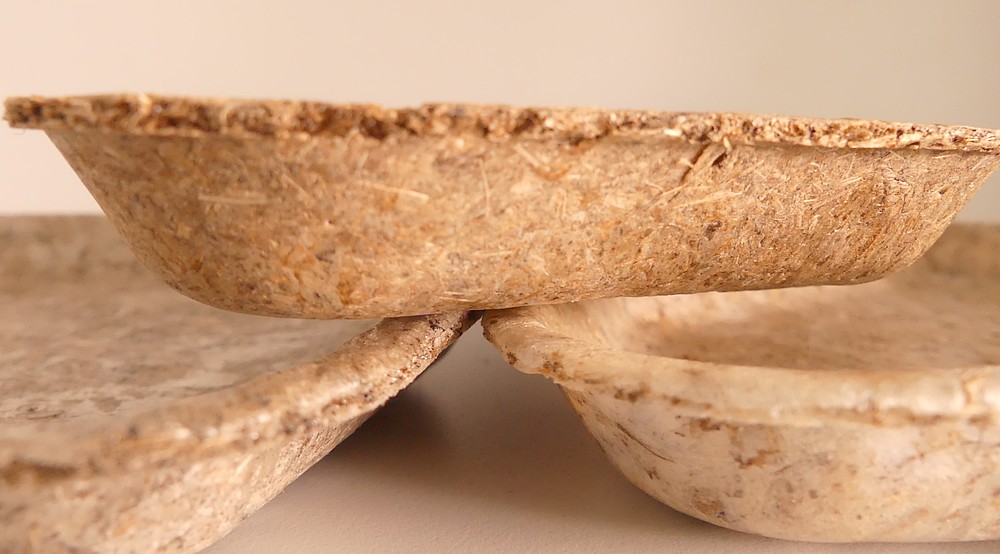Development of technologies for completely biodegradable everyday and disposable products made from residual biomass

Mineral oil-based plastics released into the environment cause lasting damage to the biosphere over many generations. A sensible solution to avoid the ever-increasing global uncontrolled distribution of plastic is to produce consumer goods based on renewable raw materials.
Giving something back to nature at the end of the product life cycle by achieving complete biodegradability, together with the use of residual biomass, characterizes the degree of innovation of the project launched in May 2021 - impulse project 6 Consumables - of the LaNDER³ partnership.
In the new impulse project, we are developing completely biodegradable everyday and disposable products from residual biomass and the technologies required to manufacture them. As such a project is currently also becoming the focus of the economic players in the LaNDER³ partnership due to the global ban on plastic consumer goods, we are developing the technologies and products together with our corporate partners and jointly bringing them to market maturity. In this way, we provide impetus for regional SMEs. There are currently no economical, sustainable processes suitable for the mass market for the production of such consumer goods (e.g. coffee cups). We therefore see the area of consumables as our key competence for the future.
The project focuses on the processing and conditioning of natural fibers from residual biomass (e.g. green waste, chaff/straw and banana trunks) and the production of technical natural fiber-based materials that can be used for industrial shaping processes (compression molding, injection molding). In addition to achieving dimensional stability, water and a certain oil resistance are also necessary properties that the materials must have together with the ability to decompose completely in composting plants and the environment.
The LaNDER3 technology partnership has been developing processes for manufacturing products based on natural fibers since 2017, taking into account all aspects of sustainability along the production and value chain.
The "Consumables" project fits perfectly into the LaNDER3 partnership and uses the know-how already acquired in the partnership in the areas of fiber extraction, conditioning and modification and ties in with many other aspects of production and process engineering.
The iTN+IOT joint institute recently spoke with Mr. Tannert about his research work in the Consumables project.
Click here for the interview.